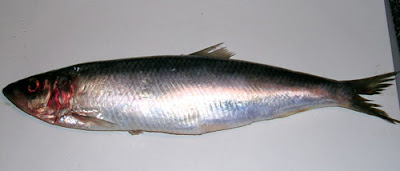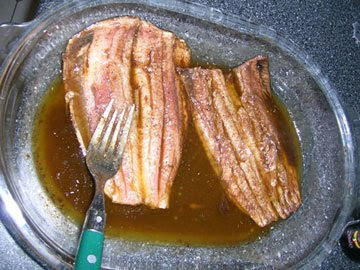A Philosophical Feast

I have often thought that we don’t really know ourselves unless we know our ancestors. And named for Sir Kenelme Digby as I am; having pored over his curious philosophical writings as I do; and staring at his comely visage as painted by Van Dyke as I am wont, I still have felt as though a chasm separates us. With these thoughts weighing upon my mind (one at times tending toward the lugubrious, as you know), I visited my local library to see what further I might learn of my illustrious namesake. Much to my joy, I learned that a collection of medicinal and culinary recipes amassed by Sir Kenelme was published a few years after his untimely death in 1665. Felicitously, my library also just happened to have a first edition of this romantically titled "The closet of the eminently learned Sir Kenelme Digbie Kt. Opened"—a quarto-sized, leather bound treasure trove whose only fault was the unflattering likeness of Sir Kenelme gracing the frontispiece.
Irresistibly drawn to red herrings as I am, I was delighted to see that "The Closet" held a recipe for the preparation of that elusive delicacy. Simple, elegant and succulent (so I have been assured), the recipe reads as follows:
“After they [the herrings] are opened and prepared for the gridiron, soak them (both sides) in Oyl and Vinegar beaten together in pretty quantity in a little Dish. Then broil them, till they are hot through, but not dry. Then soak them again in the same Liquor as before, and broil them a second time. You may soak and broil them again a third; but twice may serve. They will be then very short and crisp and savoury. Lay them upon your sallet [salad], and you may also put upon it, the Oyl and Vinegar, you soaked the Herrings in.”
What better way, I began to think as I read, could there be to understand the gustatory landscape and indeed inner lifeworld of Sir Kenelme than to replicate a recipe he had tasted, recorded and perhaps even made himself (or at least had made)? The more I thought about this, the more excited I became. But immediately a problem arose: where was I to get herring? As you know, I normally don’t eat fish—having been born on a boat, it feels as though I am eating my brethren—and so I had no idea where to procure such dainties. Being in the library, I just made my way over to the check-out counter and asked the librarian. “I need to get a fish for philosophical purposes,” said I. “Might you recommend a fish shop in the area?” This threw the librarian into paroxysms of confusion, as she thought I was saying “fiche” as in microfiche. Then, once I explained that no, I was in fact trying to buy a herring, she determined that I was insane and would no longer speak to me.
Undeterred by this cool reception, I put practicalities out of my mind and sauntered off to another library, spending the afternoon learning some of the finer points of herring anatomy. Having resolved to try my luck with the recipe, I felt I could only do justice to Sir Kenelme’s tastes by acquiring knowledge that would allow me to readily discern a good herring from a bad one and to be able to identify its major external features. Well, as ever, I was readily drawn into a dazzling world of esoteric information: if you need to know anything about the species Clupea harengus; the locomotive advantages of a forked caudal fin; or how to discern where in the open sea a school of herring has just passed, ask Old Ken!
By the time I got back to my neighborhood, the specialist butcher had closed. Nonetheless, I found two attractive specimens of Clupea harengus at my local grocery store. While the fishmonger there was kind enough to gut the herring, I had him leave the heads on as I wanted to compare the measurements of my “catch” with those standards I had been reading all afternoon. The fish you see above measured 10 1/2 inches (27 cm) from tip to tail. Slim, coated with gorgeous, iridescent scales that seemed to be engraved into its body like low-relief carvings on silver plate, my herring was quite an attractive creature.

Therefore, it was some consternation that I began the unsavory process of making this attractive couple into “very short and crisp and savoury” delicacies. After I had made my measurements, I removed the heads and cut firmly down through the existing incision in the abdomen so as to expose the spinal cord. Although the sights and sounds made in the process were more disturning to me than you will ever know, the spinal cord and major rib structure could be extracted with relative ease, revealing a stunning magenta mandorla hidden within.

The next step required preparing a mixture of oil and vinegar mixture and marinating the herring therein.

Once sufficiently coated, I threw the filets on our “gridiron” and stuck them in the broiler for a few minutes. By the time I again suspended my little friends in the marinating “liquor,” they seemed nearly cooked.

What might have Sir Kenelme imagined as fit accompaniment to this broiled delight? Although I knew I was getting closer to understanding his ways, such nice speculations were still beyond my powers. So, roasted potatoes seemed as good a method as any. Thanks to the ingenuity of flatmate Pete, these were soon ready—and delicious!

Sensitive to my feelings for my piscatory brethern, friends Pete and Catherine agreed to help with the experimental testing of this philosophical meal. I ate the potatoes voraciously.

Proof! Herrings no more, utterances of delight; Sir Kenelme’s spirit alive in the room!

Labels: cooking, Digby, Experimental







